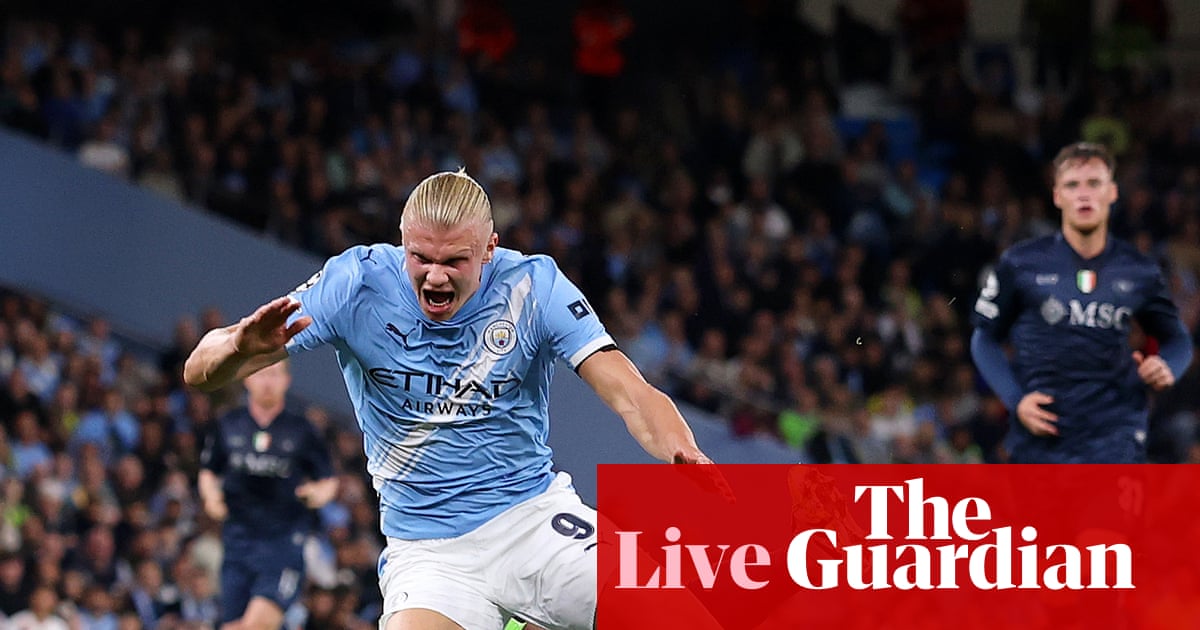A small moment from Vikings QB J.J. McCarthy captured a larger leadership idea

Editor’s Note: This story is part of Peak, The Athletic’s desk covering leadership, personal development and performance through the lens of sports. Follow Peak here.During the first game of his career, Minnesota Vikings quarterback J.J. McCarthy stood on the sideline, sharing a moment with star receiver Justin Jefferson.McCarthy had thrown for just 48 yards in the first half and tossed an interception that was returned for a touchdown. On the road in Chicago, the Vikings fell behind 17-6. McCarthy looked at Jefferson and delivered a five-word message, captured by microphones on the “Monday Night Football” broadcast.“Don’t give up on me,” he said.It was surprisingly vulnerable. McCarthy stated his request to Jefferson directly, but softly, confidently and earnestly. It sounded genuine. It was easy to see why the moment went viral.“I got you, brother,” Jefferson responded. “You don’t gotta tell me.”@espn“Don’t give up on me.” 🥹 #JustinJefferson never doubted his QB #JJMcCarthy in his debut 💜 (via @Vikings) #espnsocial #teammates #nfl♬ snowfall – Øneheart & reidenshiFor Amy Edmondson, a professor of leadership and management at Harvard Business School, the exchange illustrated a simple lesson in effective communication and leadership. Edmondson is an academic who studies human failures and psychological safety in the workplace. The latter was a formerly obscure term in psychology and management research that became shorthand for a simple concept: Is there an environment of candor at the office?“What both players are demonstrating is vulnerability,” Edmondson said. “But let me describe that as honesty. They’re just being honest and candid — not only about what happened, but about what they need from each other to go forward. And forgive me for using this word, but it’s just plain efficient to do that.”For McCarthy, a 2024 first-round pick from Michigan who missed last season with a knee injury, the viral moment preceded a comeback victory in his first start over the Chicago Bears, including two touchdown passes and a touchdown run in the fourth quarter. Things were less promising in Week 2; McCarthy, fresh off the birth of his first child, threw two interceptions in a 22-6 loss against the Atlanta Falcons and will miss time with an ankle injury.“Everyone’s telling me that this is a frickin’ journey,” McCarthy told the media after Sunday night’s game, “and I believe them wholeheartedly.”Yet McCarthy’s viral exchange offered a tiny window into a leadership lesson — one that could hold promise for Vikings fans while also serving as a guide for leaders in any field.What made McCarthy’s exchange with Jefferson so interesting, Edmondson said, was just how rare such vulnerability can be, both in the cutthroat world of the NFL and in boardrooms across America.“We don’t just say straight what happened and what we need from each other,” Edmondson said. “And not only does that save us time and heartache, but it builds stronger bonds.”Workplace candor and honesty were the subjects of Edmondson’s 2018 book, “The Fearless Organization.” Her research indicated that the most successful organizations promoted an atmosphere in which employees could speak up, ask questions and be candid with their colleagues. She believes in three simple steps to create the “psychological safety” needed for learning and growth.The first is calling attention to the uncertainty and complexity of a common goal. The second is being intentional about inviting the quiet voices in — casting a wide net of input and collaboration. The third is a productive response. The exchange between McCarthy and Jefferson, Edmondson said, featured elements of all three.“Think about any friendship you have,” Edmondson said. “It shifted from acquaintance to friendship because you go over that line of being vulnerable and honest. It’s that kind of honesty that is a form of vulnerability, and now we’re friends. We have a more genuine relationship with each other, and anything that allows us to have a stronger human bond and quickly convey what we need and what we’re worried about frees us up to go on to win the next game.”In the case of McCarthy and Jefferson, the dynamics were specific to football. McCarthy is a quarterback, a position that requires a certain level of leadership, even in a locker room full of more experienced teammates. Meanwhile, Jefferson is one of the most accomplished players in the league, a highly paid superstar at a key position.For Paul Hibbert, a professor of management at the University of St. Andrews, the exchange provided “a micro example” of how the best leaders acknowledge and handle difficult emotions.“Everybody has these kinds of moments of emotional experience in leadership,” Hibbert said. “It’s normal. Because leadership is only required when things are uncertain, when they’re unpredictable.”McCarthy’s moment on the sideline was a small encapsulation of that idea in practice.“That kind of vulnerability is not weakness,” Hibbert said. “It’s actually a strength.”Hibbert also emphasized a salient point: Solving a problem in the moment is not the same as having a long-term strategy.In football terms, one of the most important traits a leader can have is a record of success. Sports, unlike other aspects of leadership, are a zero-sum game. People have to trust that following you will lead to victories.In his first start, McCarthy demonstrated that ability, rallying the Vikings to a comeback win. On Sunday against the Falcons, he could not.“It starts with me,” McCarthy told the media after the game. “I got to play better.”(Illustration: Dan Goldfarb / The Athletic; Patrick McDermott / Getty Images)









